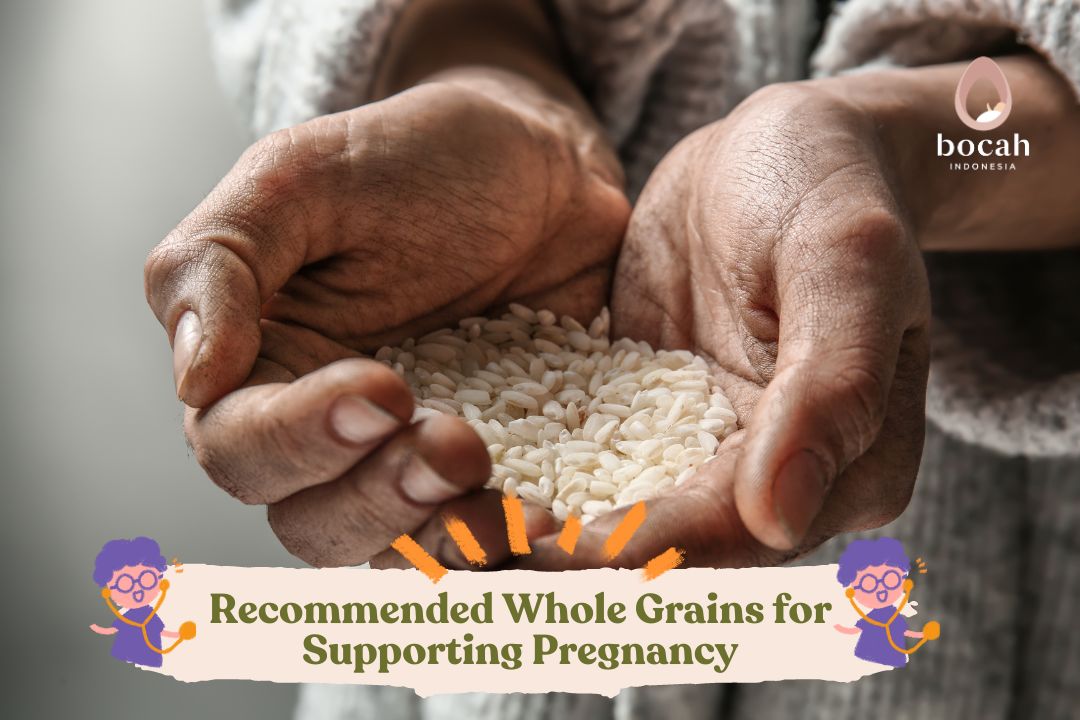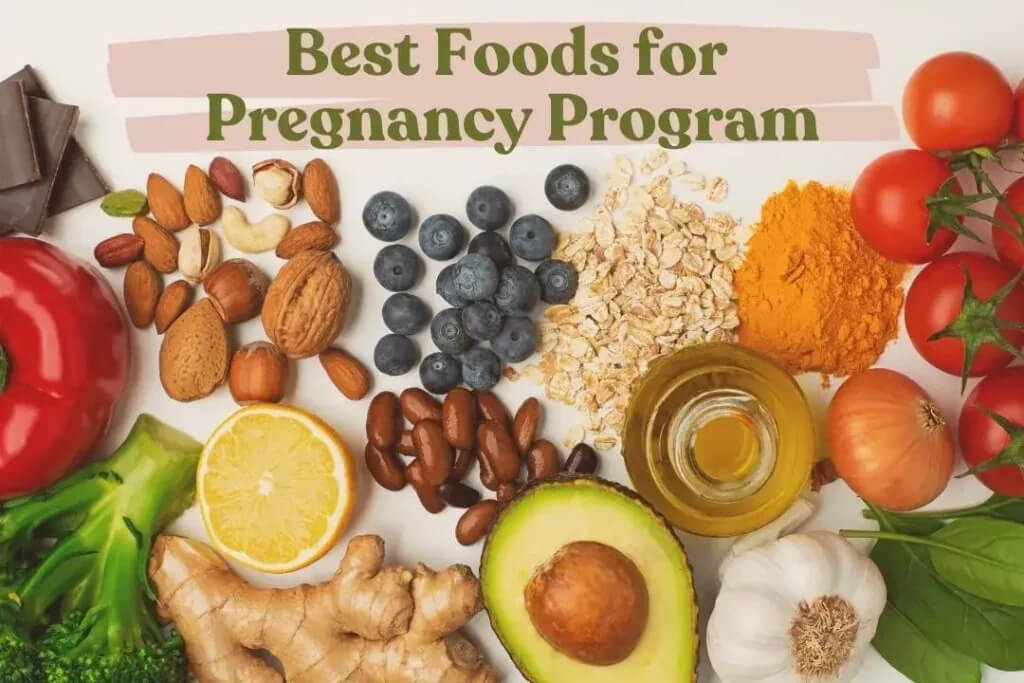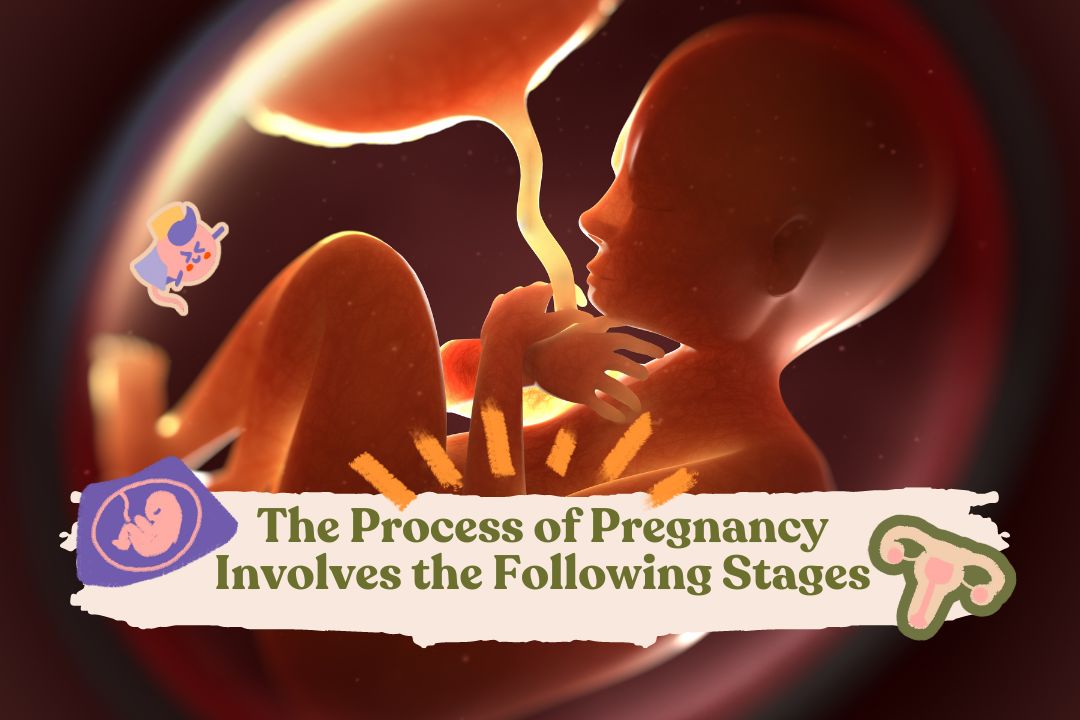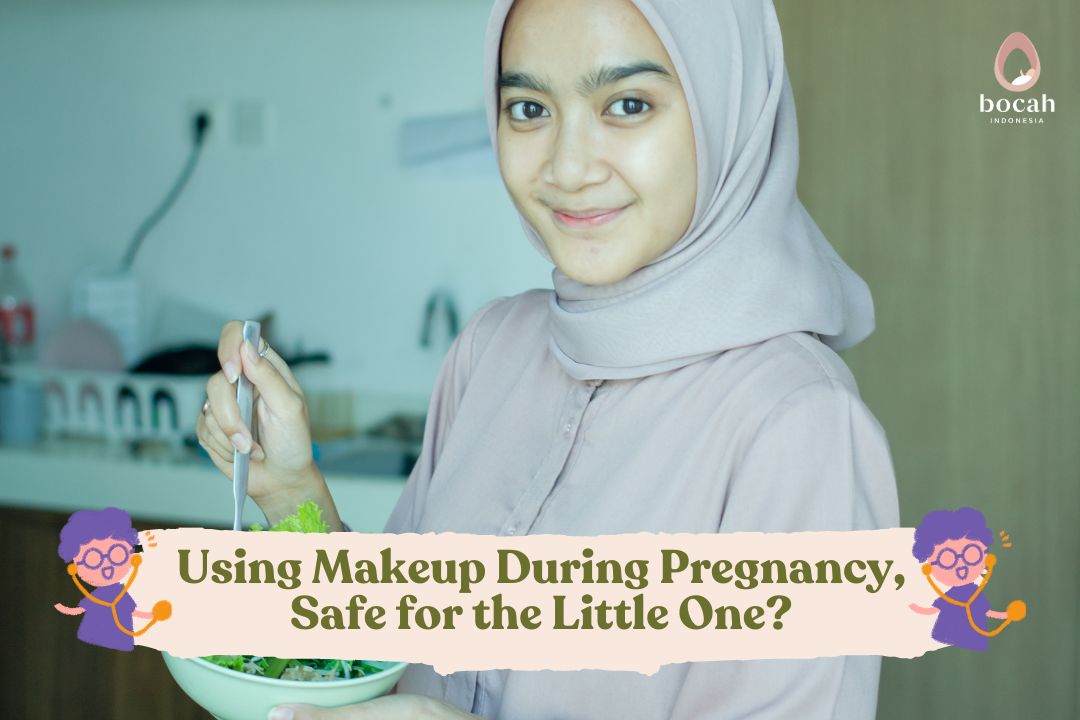Recommended Whole Grains for Supporting Pregnancy

Maintaining uterine health is crucial when preparing for pregnancy, and one way to do so is by consuming whole grains.
When trying to conceive, there are many steps that parents-to-be can take to boost fertility. One of them is by eating foods that are not only healthy and nutritious but also support reproductive hormones.
Did you know that whole grains are one of the best foods for fertility? Let’s discuss why these whole grains can help you on your journey to pregnancy.
What Are Whole Grains?
Whole grains are grains that have not undergone processing that removes important parts of the grain. Examples include brown rice, whole wheat, oats, and quinoa. These grains still contain all parts of the grain, including the outer layer (bran), endosperm, and germ. These three parts are rich in nutrients that are highly beneficial, including for fertility.
Why Are Whole Grains Good for Fertility?
The nutrients found in whole grains play a crucial role in maintaining hormone production in the body, for both men and women.
Tanya Mincah tentang Promil?
1. Rich in Fiber
Whole grains contain high levels of fiber, which helps maintain a healthy digestive system. A healthy digestive system can better absorb nutrients, including the vitamins and minerals essential for fertility.
2. Source of B Vitamins
Whole grains are rich in B vitamins, particularly B6 and folate (B9). Folate is crucial for cell development and is especially needed by the body during the early stages of pregnancy to prevent birth defects.
3. Stabilizing Blood Sugar
Consuming whole grains can help stabilize blood sugar levels. Stable blood sugar levels can prevent hormonal imbalances that could affect fertility.
4. Rich in Antioxidants
Whole grains contain antioxidants that can protect the body’s cells, including reproductive cells, from damage caused by free radicals. This is important for maintaining the health of eggs and sperm.
5. Contains Iron
Whole grains contain iron, a mineral necessary for the production of red blood cells in the body. Healthy red blood cells help circulate oxygen throughout the body, including to the reproductive organs.
Whole Grains That Are Good for Fertility
Reproductive health is crucial, especially when you’re trying to conceive. One natural way to boost fertility is by consuming whole grains. Here are some types of whole grains that are beneficial for fertility along with their benefits:
1. Brown Rice
Brown rice is certainly familiar to many. This low-carbohydrate grain contains only about 24 grams of carbohydrates per 100 grams. Additionally, brown rice is rich in antioxidants such as polyphenols, anthocyanins, flavonoids, fiber, vitamins, and minerals that the body needs. Consuming brown rice can reduce the risk of various diseases such as diabetes, stroke, and heart disease, and it is also good for supporting reproductive health.
2. Oats
Oats are a popular type of grain for weight control. In one cup (35 grams) of cooked oats, there are approximately 110 calories, 8 grams of fiber, and 21 grams of carbohydrates. You can opt for rolled oats, which are lower in carbohydrates, as opposed to instant oats, which contain higher carbohydrates. Oats are rich in beta-glucan, a fiber known to be effective in lowering bad cholesterol (LDL) levels, thus reducing the risk of heart disease. This low-carbohydrate grain is also beneficial for controlling blood sugar levels and supporting digestive health, which is important for hormonal balance and reproductive health.
3. Quinoa
In one cup of quinoa (about 150 grams), there are around 34 grams of carbohydrates. Quinoa also contains nine essential amino acids that play a role in the formation of muscle, bone, skin, and blood tissue. Moreover, quinoa is a source of fiber and polyphenol antioxidants that help improve digestion, reduce inflammation, and lower the risk of chronic diseases such as diabetes and hypertension. All these benefits support a healthy reproductive system for both of you.
4. Corn
Another healthy whole grain option for reproductive health is corn. Corn is a great choice because it is low in carbohydrates and calories. Additionally, corn is rich in fiber, antioxidants, B vitamins, magnesium, folate, and phosphorus. You can prepare corn in many ways, from boiling and roasting to making popcorn. However, for a healthier option, it is recommended to consume corn or popcorn without added butter and salt. This is because both ingredients can increase cholesterol and blood pressure, which is not good for reproductive health.
5. Barley
Barley is a type of whole grain that is high in fiber and low in carbohydrates. It is also a good source of antioxidants and fiber, and it contains various other nutrients such as protein, B vitamins, folate, phosphorus, potassium, zinc, and copper. Barley is beneficial for lowering cholesterol levels, improving digestion, and controlling blood pressure and blood sugar levels, all of which are important for reproductive health.
6. Flaxseed
Flaxseed is low in carbohydrates but rich in fiber and various nutrients. In one cup or about 150 grams of flaxseed, there are 45 grams of carbohydrates and 40 grams of fiber. Flaxseed is also a source of omega-3 fatty acids, phosphorus, magnesium, and potassium. Regular consumption of flaxseed can promote digestive health, lower cholesterol levels, maintain an ideal body weight, and control blood sugar and blood pressure levels. All of these are crucial for maintaining hormonal health and fertility.
7Chia Seed
Another type of low-carbohydrate grain is chia seed. This food, known as a superfood, also contains protein, omega-3 fatty acids, and various vitamins and minerals. Chia seed is an excellent choice for those looking to maintain an ideal body weight or are on a diet. Additionally, these seeds are good for preventing and relieving constipation as well as controlling blood sugar levels, which are important for reproductive health. By incorporating these whole grains into your daily diet, you can improve overall health and support fertility.
I hope this information is helpful and aids you in your pregnancy journey. Don’t forget to consult with a doctor if you have concerns about infertility or fertility issues.
Source:
- Park, et al. (2017). Antioxidant and Antimicrobial Activities of Quinoa (Chenopodium quinoa Willd.) Seeds Cultivated in Korea. Preventive Nutrition and Food Science. 22(3), pp. 195–202.
- Arnarson, A. Healthline (2019). Corn 101: Nutrition Facts and Health Benefits.
- Gunnars, K. Healthline (2020). Carbohydrates: Whole vs. Refined — Here’s the Difference.
- Frey, M. Verywell Fit (2021). Barley Nutrition Facts and Health Benefits.
- Frey, M. Verywell Fit (2020). Chia Seed Nutrition Facts and Health Benefits.
- WebMD (2020). Brown Rice: Health Benefits, Nutrition Facts, and How to Prepare It.










